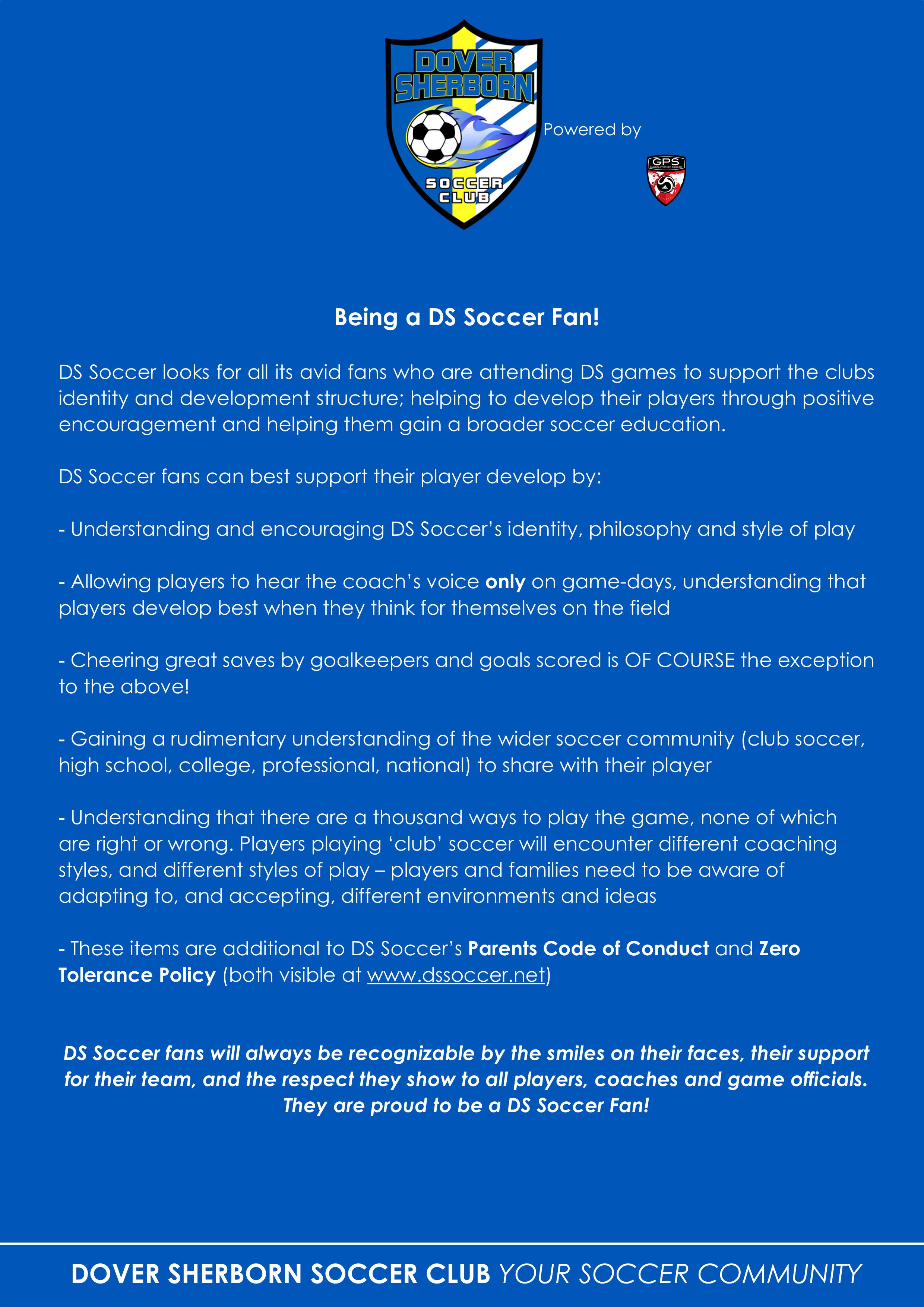
Parents and Spectators Code of Conduct
Parents and Spectators, it is easy to have a great Coach/Parent/Player experience. Just follow these eight simple rules...
- Understand the coach and team philosophy. If you don't know the goals of the team (for example, player development versus winning), ask the coach.
- Send your children ready to play. They should be properly fed and clothed, and they should arrive on time.
- Support the team, but do not instruct the players. It confuses your child and others, and undermines the efforts of the coach.
- Avoid confusion when cheering. Do not say anything that is a command, such as "Pass it," "Shoot," or "Boot the ball."
- Use positive encouragement instead. This would include such comments as "Way to go," "Nice effort," or "Stay with it."
- Refrain from speaking to officials, unless it is to say thank you after the game. If you have questions or concerns with the referees, relay the information at the proper time (see rule 7) to the coach.
- Speak to the coach at the proper time. If you have concerns, use e-mail or the telephone. If it is about a game, let the dust settle for a couple of days first.
- Report to the coach all injuries, special medical conditions (such as asthma) or extenuating circumstances (such as lack of sleep or family crisis) that may affect the player.
- Cheer enthusiastically for your team but please behave respectfully towards the opponents - they are someone else's children as well.
Zero Tolerance
All individuals responsible for a team and all spectators and parents shall support the referee. Failure to do so will undermine the referee's authority and has the potential of creating a hostile environment for the players, the referee, and all the other participants and spectators.
No one is to speak to the referee during or after the game. Exceptions: Coaches may ask questions before the game, call for substitutions and point out emergencies during the game, or respond to the referee if addressed.
Absolutely no disputing calls, during or after the game, no remarks to the referee to watch certain players or attend to rough play. NO YELLING at the referee, EVER, and no criticism, sarcasm, harassment, intimidation, or feedback of any kind during or after the game.
